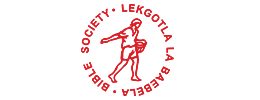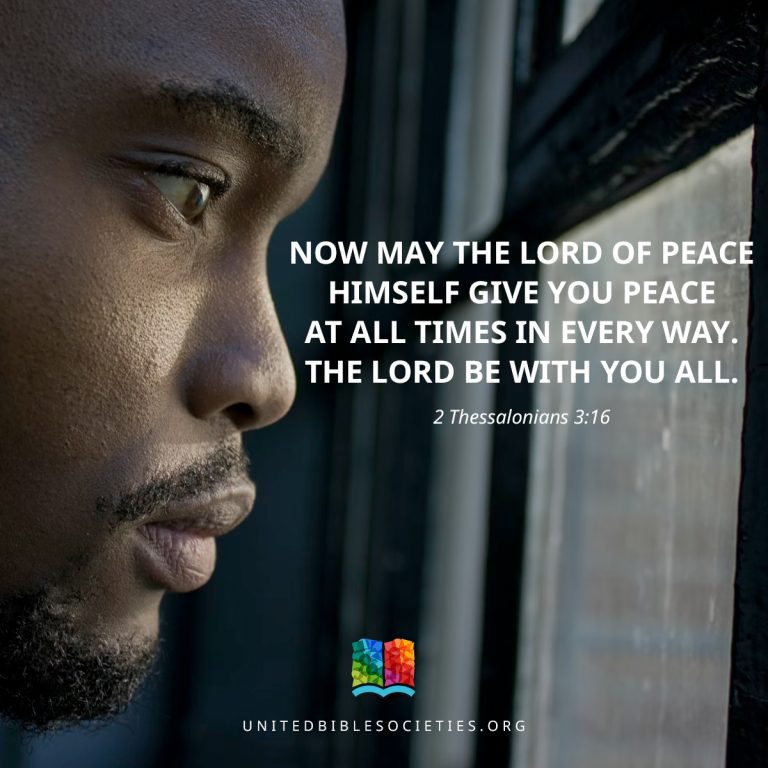Unclean People
1 The Lord said to Moses, 2 “Command the people of Israel to expel from the camp everyone with a dreaded skin disease or a bodily discharge and everyone who is unclean by contact with a corpse. 3 Send all these ritually unclean people out, so that they will not defile the camp, where I live among my people.” 4 The Israelites obeyed and expelled them all from the camp.
Repayment for Wrongs Done
5 The Lord gave Moses 6 the following instructions for the people of Israel. When any of you are unfaithful to the Lord and commit a wrong against someone, 7 you must confess your sin and make full repayment, plus an additional 20 percent, to the person you have wronged. 8 But if that person has died and has no near relative to whom payment can be made, it shall be given to the Lord for the priest. This payment is in addition to the ram used to perform the ritual of purification for the guilty person. 9 Also every special contribution which the Israelites offer to the Lord belongs to the priest to whom they present it. 10 Each priest shall keep the offerings presented to him.
Cases of Wives with Suspicious Husbands
11 The Lord commanded Moses 12-14 to give the Israelites the following instructions. It may happen that a man becomes suspicious that his wife is unfaithful to him and has defiled herself by having intercourse with another man. But the husband may not be certain, for his wife may have kept it secret—there was no witness, and she was not caught in the act. Or it may happen that a husband becomes suspicious of his wife, even though she has not been unfaithful. 15 In either case the man shall take his wife to the priest. He shall also take the required offering of two pounds of barley flour, but he shall not pour any olive oil on it or put any incense on it, because it is an offering from a suspicious husband, made to bring the truth to light.
16 The priest shall bring the woman forward and have her stand in front of the altar. 17 He shall pour some holy water into a clay bowl and take some of the earth that is on the floor of the Tent of the Lord's presence and put it in the water to make it bitter. 18 Then he shall loosen the woman's hair and put the offering of flour in her hands. In his hands the priest shall hold the bowl containing the bitter water that brings a curse. 19 Then the priest shall make the woman agree to this oath spoken by the priest: “If you have not committed adultery, you will not be harmed by the curse that this water brings. 20 But if you have committed adultery, 21 may the Lord make your name a curse among your people. May he cause your genital organs to shrink and your stomach to swell up. 22 May this water enter your stomach and cause it to swell up and your genital organs to shrink.”
The woman shall respond, “I agree; may the Lord do so.”
23 Then the priest shall write this curse down and wash the writing off into the bowl of bitter water. 24 Before he makes the woman drink the water, which may then cause her bitter pain, 25 the priest shall take the offering of flour out of the woman's hands, hold it out in dedication to the Lord, and present it on the altar. 26 Then he shall take a handful of it as a token offering and burn it on the altar. Finally, he shall make the woman drink the water. 27 If she has committed adultery, the water will cause bitter pain; her stomach will swell up and her genital organs will shrink. Her name will become a curse among her people. 28 But if she is innocent, she will not be harmed and will be able to bear children.
29-30 This is the law in cases where a man is jealous and becomes suspicious that his wife has committed adultery. The woman shall be made to stand in front of the altar, and the priest shall perform this ritual. 31 The husband shall be free of guilt, but the woman, if guilty, must suffer the consequences.
Bathu bakatemapala
1 Yahwe bakadwa Mushe bakati, 2 “Idwa bathu be Iziraela badusile kuzhe kwe bukotokelo mmwe ne mmwe unogwala mapele ne mmwe ne mmwe unogwala tjigwele ne mmwe ne mmwe wakatemapadziwa nge bafi. 3 Utatile kuzhe bose bakadzi ne balume bakatemapala, kuti basitemapadze bukotokelo gwabo, pandinogala pakati kwe bathu bangu.” 4 Ngono Baiziraela bakathama beijalo, bakabadusila kuzhe kwe bukotokelo Yahwe sekwa bakadwa Mushe.
Nlayo we ndipo ye milandu
5 Yahwe bakadwa Mushe bakati: 6 “Idwa bathu be Iziraela uti, ‘Ha nlume kene nkadzi ethama zwimwe zwe zwibi ngosangalamoyo muna Yahwe nthu wakajalo nlandu, 7 azwilebe nlandu uwe, abe elipa nlandu uwe nge buzhalo, ebuya epapha nge ikwamu tjing'ompela mu zwikwamu zwili zwishanu zwe themba ye nlandu uwe, ebe epa uwoyo waathamila nlandu. 8 Koga ha nthu wakafanila lipiwa asina n'gali thaka, ndipo ye nlandu inothamigwa Yahwe ili ye mpirisiti, ipapha pezhugwi kwe nyundo yaisiwa tjibhayilo tje gadzano tjathamigwa wathama nlandu. 9 Ngono zwipo zose zwakayengemala zwe Baiziraela zwabanoyisa ku mpirisiti zowobe zwizwe. 10 Tjipo tje nthu tjimwe ne tjimwe tjakayengamala tjinoyisiwa kuna Yahwe, mpirisiti azwitolegwe itjo.’ ”
Balume bano kumbulila
11 Yahwe bakadwa Mushe bakati, 12 “Idwa bathu be Iziraela uti, ‘Ha nkadzi we nthu angatjinya ngothama bupombgwe, 13 ebe ewalilana thobo ne mmwe nlume, nlume uwe kasizibe, kukasibe ne waziba kuti wa temapala kakale kusina butendeki gwe kuti wabhakhwa bupombgwe, 14 ngono ha nlume uwe angazhigwa ne fupa kakumbulila nkadzi uwe kuti wathama bupombwe katemapala, ngono asina butendeki, 15 Ipapo nlume azhise nkadzi uwe ku mpirisiti, abe ezhisa ne tjipo tjinoshakigwa nkadzi uwe tjili tjilizanyo tje seme ing'ompela ye bgwisa gwe mathunde e bhali, asitongogudila mafuta, kakale asitongo gulonga motsha unonuhwa zwinozipa pezhugwi kwago, ngobe tjili tjipo tje mathunde tjinoyisiwa nge nlume unokumbulila, tjithamigwa kudusila lebeswa patjena.’ ”
16 “Ngono mpirisiti unowosedzedza nkadzi, kambiga mbeli kwa Yahwe. 17 Mpirisiti unowotola vula yakayengemala nge ndilo ye ntapkhwi, ebe etola hwuluba pa budzilo mukati kwe bugalo gwe Ndzimu ebe edila mu vula. 18 Ngono mpirisiti unowozhisa nkadzi mbeli kwa Yahwe, abe ewundumula mavudzi mu nsholo we nkadzi, abe entshitsha bgwisa mu maboko, guli bgwisa gwe tjipo tje fupa, gunoyisigwa kukumbulila. Mpirisiti iye ebe akabhata vula inobaba mu maboko awe inozhisa bhiso. 19 Ndizo mpirisiti antunise alebeleke ati, ‘Ha kusina nlume wakapombgwa nawe, kene usaka pambuka mu zila uka tjinya ukazwitemapadza, utjipasi kwe nlayo we nlume uwo, usungunuke mu kulongwa bhiso nge vula iyeyi inobaba. 20 Koga ha wakapambuka mu zila ukapombgwa, utji pasi kwe nlayo we nlume uwo, ngono wazwitemapadza, ngolala ne nlume usi uwo mu bumo gwe nlume uwo, 21 mpirisiti unowotunisa nkadzi nge tuna kwe bhiso eti, “Yahwe ngabakulonge bhiso pakati kwe bakanyi kwenyu. Yahwe ngaba ku bhatise shoni, bakukumadze ntumbu uwo. 22 Vula iyeyi inolonga bhiso ikungine mu ntumbu, ikuzwimbise mbili na mbeli kuko kuswabe.” ’ ”
“Ngono nkadzi unowodabila eti, ‘Ngakujalo, ngakujalo.’
23 “Ndizo mpirisiti unowokwala bhiso ileli mu lukwalo, ebe elisukila mu ndilo ina vula inobaba. 24 Ngono mpirisiti unong'wisa nkadzi vula inobaba inolonga bhiso, inowongina mu ntumbu uwe ikanlonga zwibhayo zwinogwadza. 25 Mpirisiti unotola tjipo tje bgwisa tje kumbulila mu luboko gwe nkadzi, ebe ezunguza bgwisa mbeli kwa Yahwe eguyisa ku tjibeso tjinopisigwa zwibhayilo. 26 Mpirisiti unowonokola luboko gulizhele ili gobe le ikumbuludzo ebe egupisila mu tjibeso tjinopisigwa zwibhayilo, shule kwa ikoko mpirisiti unong'wisa nkadzi vula. 27 Ngono kowoti shule kwe anng'wisa vula, ndizo ha angabe akazwitemapadza, akathamila nlume uwe bupombgwe, vula inolonga bhiso inongina mu ntumbu uwe ikanlonga zwibhayo zwinogwadza, ebe ezwimba mbili ebe eswaba na mbeli, ngono nkadzi unowobhakhwa nge shoni muna bakanyi kwabo. 28 Koga ha nkadzi asakazwitemapadza kakale asina nlandu, aatowohwisiwa zogwadza kakale unowotubula kuwana bana.
29 “Oyu ndiwo nlayo we kumbulila, ha nkadzi ali pasi kwe nlayo we nlume uwe, ebe ebhuda mu zila ezwitemapadza, 30 kene ha meya dze kumbulila dzangina mu nlume, ebe enomisa nkadzi mbeli kwa Yahwe, mpirisiti unoshingikadza nlayo uwoyu. 31 Nlume unowobhuda mu nlandu, koga ha nkadzi ali nlandu wakafanila kuusenga nge mathudzi.”

